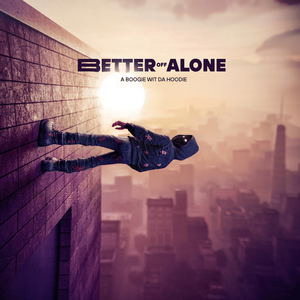I often keep my headphones in at work to entertain myself through long, boring shifts. Recently, I found myself in a listening limbo — between podcasts and playlists — and thought I’d look for something new. One search for “podcast” on Spotify yielded a slew of macabre titles: “My Favorite Murder,” “Criminal,” and “Crime Junkies.” I clicked on the latter and started listening.
My shift passed quickly listening to the story of the Hillside Strangler, who killed ten women in Los Angeles, the city where my grandma lives. The name of each victim could have been mine, I thought. Next was Richard Rameriez, who killed 13. The “Monster of the Miramichi” held me captive with his story of evading police in the Canadian wilderness. I couldn’t turn it off.
As an outsider to the genre, the popularity of true crime had always bewildered me. According to Pew Research, true crime podcasts make up the bulk of top-ranked podcasts on streaming services, and the hashtag ‘true crime’ has over 60 billion views on TikTok — the genre is so large it is almost impossible to avoid.
More baffling to me was the number of women who tune in to true crime. In the same report, Pew Research found women were nearly twice as likely as men to listen to the genre. This disparity is evident in the success of series like Youtuber Bailey Sarian’s “‘Murder, Mystery and Makeup,”’ which are clearly aimed towards a female audience.
It’s no coincidence that the vast majority of victims discussed in true crime podcasts are also women. The crime covered in these shows is often sexual in nature and comes at the hands of women-hating men. Ed Kemper, Ted Bundy, Richard Rameriez and a thousand other unremarkable killers were driven by their strong resentment for women.
For me, the allure of true crime comes from my inability to comprehend the sheer level of hatred some men have for women. Compulsive listening is a fear response akin to rubber-necking, where I have to face the most gruesome outcome possible so that I can protect myself from enduring the same fate.
I think a big draw for its female audience is the feeling of protection it provides listeners. If I learn everything about every man that’s murdered a woman, maybe I can learn how to keep myself safe. If I keep listening and stay vigilant, nothing can happen to me.
For a week, true crime became part of my routine at work, a crutch I could rely on to entertain me. As I listened to it, I noticed how the stories I heard bled into the rest of my life. The empty parking lot outside my job took on an eerie air of possibility, making me clutch my keys between my fingers the way Ashley, the host, recommended.
It affected how I saw the world; every man became a potential threat, every woman a future victim. More insidiously, it skewed my perception of violence into something that was common — rampant, even — and therefore a natural fact of life. I call this the “true crime cloud:” whenever I listen to the genre, a strong and pessimistic anxiety follows me long after I turn it off.
The bleak worldview true crime promotes has been linked to a decrease in mental health and poorer quality of life, according to a study by the National Health Institute. Indulging in your fears on a daily basis will only make them grow larger.
I also felt extremely guilty the longer I listened. By deriving some sense of catharsis or comfort from the story of someone’s death, I was benefiting from their tragedy, and worse, I was supporting creators who made a fortune off of it. Luckily for me, this was enough to make me stop listening.
The bloody truth is that true crime generates profit by selling the stories of victims and exploiting the fears of female audiences. The industry inflates this fear by providing a constant flood of violent content. The threat of violent crime feels larger the more stories you hear, until it feels dangerous to look away. You never feel safe, so you never stop listening.







